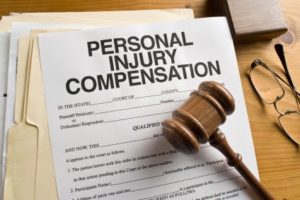 “What is my claim or case worth?” Unsurprisingly, most injured clients ask that question.
“What is my claim or case worth?” Unsurprisingly, most injured clients ask that question.
Falsehoods in the media often have people confused about what sort of monetary recovery they should expect. This is true whether they are hurt in a car accident, in an 18- wheeler crash or from any other negligent cause. We have discussed some of the many issues related to claim values a number of times.
Your Case Worth is Equal To Your Damages
The first answer is that your claim value is the same as the value of the damages you incurred. Calculating what your injuries cost you financially, physically and emotionally (or mentally) is neither easy nor precise. But the best approach is to get experienced help that can do complete and fair evaluation of your claim. That is one of the many benefits you get from hiring a good personal injury attorney.
When there is a valid personal injury case or claim, the injured person (called the plaintiff if a lawsuit is filed) gets paid money damages. The person or company who is legally responsible for the accident and injuries (called the defendant in the lawsuit) owes the money. The defendant’s insurance company often pays the damages. Insurance payments, however, are limited by the size of the insurance policy the defendant purchased.
Damages are calculated two ways: 1) they can be agreed upon (settled) by the parties, the insurance companies and attorneys, or 2) after a trial the judge or jury can award them. Settlements can happen many ways including informal negotiations or in mediation.
There is no chart, graph or calculation that applies to you claim worth or any damages claim. There are, however, some basic concepts to help you understand the various components that are evaluated to reach a value of your injury claim damages.
Damages in Personal Injury Cases
Compensatory Damages
Most of the damages in a personal injury damages are compensatory damages. This means that they exist to compensate the injured plaintiff for what he lost as a result of the injury accident. The idea is behind compensatory damages award is to try to make the injured plaintiff “whole” again from a monetary standpoint. This requires trying to capture in dollar figure all the consequences of an injury accident.
There are some compensatory damages that are straight-forward. Things like reimbursing for damaged property or medical bills incurred are easy to calculate. It is more difficult to place a monetary value on things like the physical pain people endure, the emotional suffering they go through or the lost ability to enjoy a hobby because of physical limitations caused by an injury accident.
The basic types of compensatory damages that are common in personal injury cases include:
Medical care and treatment: Personal injury damage awards always include the cost of medical care caused by the injury accident. This consists of both reimbursement for treatment already received and payment for the estimated cost of medical care you’ll need in the future because of the accident. Just getting medical bills paid can be quite a process.
Lost Income: If the injury accident caused you to lose income and will cause you to do so in the future, you have a claim for that income. These claims require substantial proof for self-employed people and commission sales people.
Property Damages: You can recover the market value of your car, bicycle, clothing and other similar items damaged in an injury accident case. This can also be the cost of repair of the property.
Pain and suffering. The law provides you compensation to make up for the pain and discomfort caused by an injury accident. They are two different things. Pain is the physical sensation and discomfort. Suffering is the mental experience related to the injuries.
Emotional distress. Emotional distress damages exist to compensate a plaintiff for the psychological impact of an injury. This includes things like fear, anxiety, and sleep loss. In Idaho a claim for emotional distress requires that there be a “physical manifestation of the emotional injury” to have a right of recovery.
Loss of enjoyment of life. If an accident injury keeps you from enjoying your regular pastimes like hobbies, exercise, and recreational activities, you may be entitled to receive “loss of enjoyment” damages.
Loss of consortium. Loss of consortium refers to the loss of the care comfort companionship of your spouse
Damage Caps. Idaho law imposes certain arbitrary limitations on the damages you can recover. Dealing with those limitations can take insightful lawyering and is one of the reasons to hire Idaho’s leading injury firm.
Punitive Damages
What are Punitive Damages?
Punitive damages exist to punish the wrongdoer and express societies “sense of opprobrium” toward bad behavior. This is different than the damages available to compensate you for your actual losses.
Punitive damages exist to deter future people from doing the same thing. These damages are not to make you whole but rather to punish others. This is very different from the role of compensatory damages, which is to make you whole. If you have the right to seek these damages it can increase your case worth. Punitive damages are also subject to statutory limitations. The goal of these kinds of damages is to punish the defendant for its conduct — to hit them in the pocketbook.
Special Procedures Apply to Punitive Damages
To recover punitive damages you must first establish for an Idaho judge that the defendant’s actions were “an extreme deviation from reasonable standards of conduct done with a “harmful state of mind.” If you do that you can the ask a jury to award punitive damages in addition to your compensatory damages.
Comparative Negligence
If your own actions played a part in causing the injury accident that can diminish the amount of money you recover in your personal injury case. It make your injury case worth less. Idaho applies the concept of comparative negligence. That concept connects damages to degree of fault in a personal injury case. Your recovery is reduced proportionally to the amount of responsibility you have for the accident injury.
Failure to Mitigate
As a plaintiff in a personal injury case you are required to take reasonable steps to minimize the financial impact the injury accident. This is called mitigation. It prevents an injured person from sitting back and doing nothing but wait for an award of damages. It requires you try to get better or get a new job or do something else to try to reduce the harm to you. If you don’t you injury case worth is again reduced.
Our goal is to be the Best Personal Injury lawyers in Idaho. We are here whether you need a Meridian car accident attorney, an Idaho Falls trucking accident attorney or a McCall boating accident lawyer or a top personal injury lawyer anywhere in the state. Just call or text Hepworth Holzer at (208) 328-6998 or send us an email at [email protected] We are here to help you.


Pingback: Who Pays My Medical Bills After an Injury Accident? | Hepworth Holzer
Pingback: Reasons a Personal Injury Lawyer Won't Take Your Case - Hepworth Holzer
Pingback: Damages Caused By An Uninsured Driver In Idaho | Idaho Injury Law Blog